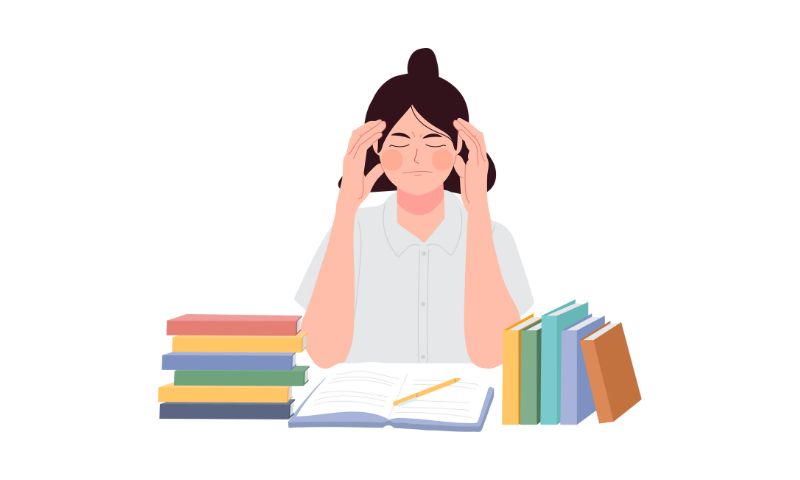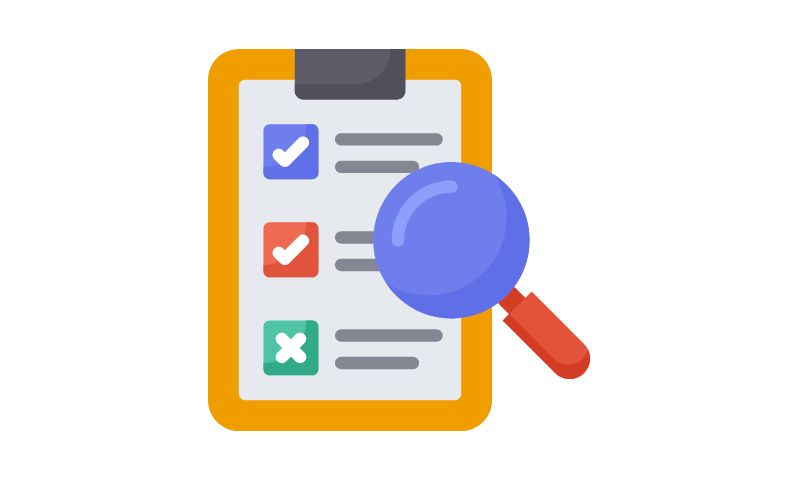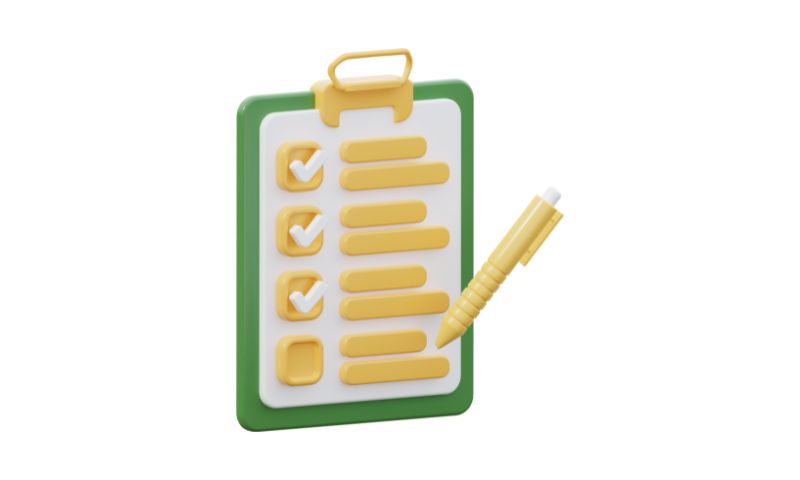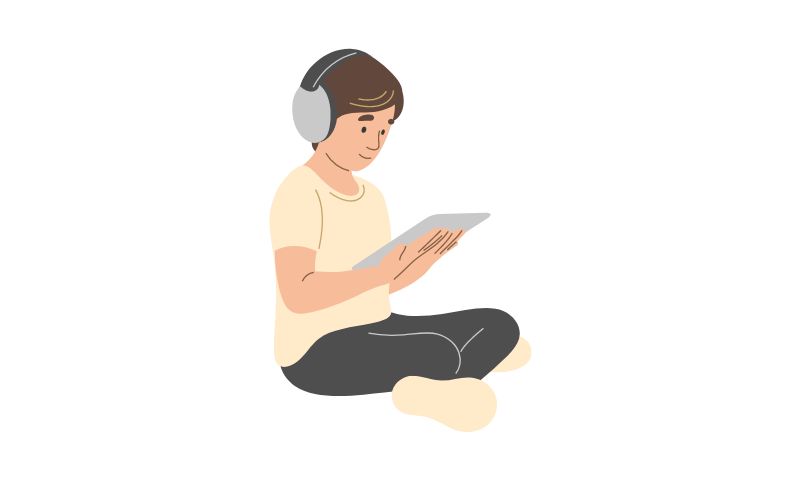Do you want to score 8 bands in IELTS, but don’t know how to score 8 bands in IELTS? If yes, then you should have a close look at this blog post to explore some of the best and most practical ways to score 8 bands in your IELTS exams.
Are you ready for an adventure of a lifetime? Picture yourself soaring to new heights of language proficiency, where the IELTS exam becomes your stepping stone to a future filled with endless possibilities.
Imagine studying at your dream university, landing that ideal job, and connecting with people worldwide, all because of that impressive 8 band in IELTS!
Fear not, we are here to guide you through this thrilling journey with a friendly and engaging approach. No more overwhelming challenges or puzzling strategies; we’ve got you covered every step of the way!
From the mesmerizing world of Listening to the artistry of Writing, our expert tips and valuable resources will empower you to shine in the IELTS exam. With dedication, practice, and a positive mindset, that coveted 8 band will be well within your reach.
Get ready to unlock your language potential and dive into the world of language excellence with us. Let this journey be unforgettable as we embark on this transformation together.
So are you excited to take the leap towards success? Buckle up, fasten your seat belts, and let’s make this language adventure one for the books.
Your dreams are within reach, and with your determination, nothing can stop you. Ready to get started? Let’s go!
How to Score 8 Bands in IELTS
Let’s dive into step by step guide in how to get 8 bands in IELTS.
Understand the IELTS Exam

Picture the IELTS exam as a puzzle with four unique pieces: Listening, Reading, Writing, and Speaking.
Each section examines different language skills and contributes to your overall band score.
For instance, in the Listening section, you’ll encounter various audio recordings, from casual conversations to academic lectures.
Understanding the exam structure helps you strategize your preparation efficiently and tailor your efforts to specific areas.
Set a Clear Goal

Imagine the 8 band as your golden ticket to a world of opportunities.
With this score, you open doors to prestigious universities, gain an edge in competitive job markets, and navigate seamlessly in English-speaking environments.
Having a clear goal fuels your motivation and keeps you focused throughout your journey.
Assess Your Current Level

Think of a practice test as your starting point on the map of language proficiency.
By taking a mock exam, you identify your strengths and weaknesses.
For instance, you might excel in the Reading section due to your reading habits but need to refine your Speaking fluency.
This self-assessment helps you prioritize and tailor your study plan accordingly.
Create a Study Plan

Crafting a study plan is like charting a course for your language expedition.
Break down your preparation into manageable milestones and allocate time for each section.
For example, devote specific days to Listening and Speaking practice, and other days to Reading and Writing exercises.
Consistency and organization are your allies in this journey.
Improve Listening Skills

Becoming an attentive listener is akin to fine-tuning your radar for English sounds.
Engage in various audio materials, from podcasts to documentaries, and take notes to capture key information.
For instance, try summarizing a TED Talk after listening to it.
This practice sharpens your ability to grasp main ideas and comprehend diverse accents.
Enhance Reading Abilities

Picture the Reading section as a treasure hunt for valuable information.
Delve into different types of texts, such as news articles, academic papers, and fiction.
Practice skimming to get a quick overview of the content, and scanning to find specific details.
These skills come in handy during the exam when time is of the essence.
Master Writing Techniques

Imagine your essays as colorful canvases of creativity and coherence.
Familiarize yourself with the requirements of both writing tasks (Task 1 and Task 2).
For example, Task 1 may involve describing a graph, chart, or map, while Task 2 requires presenting your opinion on a given topic.
Focus on organizing your ideas logically, using a range of vocabulary, and maintaining a consistent writing style.
Polish Speaking Fluency

Becoming a confident speaker is like embarking on a verbal adventure.
Engage in conversations with native English speakers or language partners.
Record yourself speaking, and review these recordings to identify areas for improvement.
Seek opportunities to participate in group discussions, debates, or language exchange programs to enhance your fluency and pronunciation.
Expand Vocabulary
Imagine vocabulary as the vibrant paint colors on your language palette.
Regularly learn new words and phrases, and practice using them in different contexts.
For instance, challenge yourself to incorporate idioms or expressions in your speaking and writing.
This artistic approach adds flair and depth to your language skills.
Practice Mock Tests
Think of mock tests as your dress rehearsals before the big performance.
Regularly take full-length practice exams under timed conditions.
Analyze your performance, review the answers, and identify recurring mistakes.
Mock tests not only familiarize you with the exam format but also build your confidence for the actual test day.
Review and Analyze

Treat each practice test as a treasure trove of insights.
After completing a mock exam, thoroughly review your answers.
Analyze your mistakes and note the areas that need improvement.
For example, you might notice that you tend to overlook specific types of questions in the Reading section.
This detective work helps you fine-tune your skills.
Seek Feedback

Imagine feedback as the guiding hand of a wise mentor.
Request feedback from teachers, tutors, or friends on your speaking and writing performance.
Constructive criticism highlights areas where you shine and areas where you can grow.
Embrace this valuable input to refine your language abilities.
Stay Consistent

Consistency is your passport to progress. Dedicate a set amount of time each day to practice, review, and learn.
Steady effort ensures that your language skills grow steadily over time. Like a dedicated athlete, stay committed to your language journey.
Manage Test-Day Stress

Picture the test day as a stage for showcasing your language talent.
Practice relaxation techniques, such as deep breathing or visualization, to stay calm and composed during the exam.
A clear mind improves your focus and performance.
Believe in Yourself

Keep a positive mindset throughout your preparation. Believe that you can achieve your desired score and that your dedication will pay off.
Visualize success and see yourself confidently handling each section of the exam. Your self-belief is a powerful ally on your language quest.
By following these steps with dedication and enthusiasm, you’ll be well on your way to mastering the IELTS exam and achieving that coveted 8 band.
Remember, this journey is not merely about the destination but the adventure of growth and improvement.
Each step you take brings you closer to unlocking endless opportunities in the English-speaking world. So, embrace the joy of learning, and let’s make this journey memorable and successful together!
Tips for Success
Here are some valuable tips for success in your journey to achieve an 8 band in the IELTS exam:
Consistency is Key
Dedicate regular time and effort to your preparation. Consistent practice and study sessions will yield better results than sporadic bursts of study.
Set Realistic Goals
Break down your study plan into achievable milestones. Setting realistic goals helps you track your progress and stay motivated.
Practice Makes Perfect
Regularly practice each section of the exam to become familiar with the format and improve your skills over time.
Use Official Study Materials
Utilize official IELTS practice materials to get a sense of the actual exam questions and develop a better understanding of the exam’s structure.
Seek Feedback and Guidance
Don’t hesitate to seek feedback from teachers, tutors, or language partners. Their input will help you identify areas that need improvement.
Immerse Yourself in English
Surround yourself with English as much as possible. Listen to English music, watch English movies, and read English books to enhance your language skills.
Practice Time Management
During mock tests, practice managing your time effectively for each section. This skill is crucial to complete all tasks within the given time limits during the actual exam.
Stay Positive and Confident
Believe in your abilities and remain positive throughout your preparation. Confidence in your language skills will reflect in your performance.
Review and Analyze Mistakes
Learn from your mistakes in practice tests and focus on improving those areas. Continuous improvement is essential for success.
Simulate Test Conditions
During mock exams, create an environment similar to the actual test. Sit in a quiet space, use a timer, and take the test seriously to simulate the exam experience.
Stay Healthy and Rested
Prioritize your well-being and get enough rest before the exam day. A fresh and alert mind performs better.
Visualize Success
Imagine yourself achieving your desired score and succeeding in the IELTS exam. Visualization can boost your confidence and motivation.
Stay Informed
Keep updated with any changes or updates related to the IELTS exam. Familiarize yourself with the latest exam format and requirements.
Learn from Others’ Experiences
Read success stories of candidates who achieved their target scores. Their experiences and tips can inspire and guide you.
Stay Composed on Test Day
Remain calm and composed during the exam. Manage test-day stress with deep breathing and positive affirmations.
Remember, the journey to an 8 band in IELTS requires dedication and effort, but with these tips, you’ll be well-prepared to tackle the exam with confidence.
How many marks required to get 8 band in IELTS?
To achieve an 8 band in IELTS, you generally need to score between 7.5 to 8.0 in the overall test. This score reflects a high level of proficiency in English, indicating a strong ability to understand and use complex language in various contexts.
Scoring in this range demonstrates an excellent command of the language and opens doors to numerous academic and professional opportunities worldwide.
Can I get 8 band in IELTS without coaching?
Yes, it is possible to get an 8 band in IELTS without coaching. With dedicated self-study, ample practice using official study materials, and access to online resources, you can improve your language skills and prepare effectively for the exam.
Many candidates have successfully achieved high scores through self-study and consistent practice. However, coaching can provide valuable guidance and personalized feedback.
So it ultimately depends on your learning style and the level of preparation you feel comfortable with. Regardless of your approach, hard work, determination, and practice are key to reaching an 8 band in IELTS.
How rare is 8 in IELTS?
Scoring an 8 band in IELTS is relatively rare and considered an exceptional achievement. It signifies a high level of English proficiency, demonstrating a strong command of the language across all sections of the exam.
Achieving an 8 band requires a deep understanding of complex language structures and the ability to communicate fluently and accurately.
While it is challenging to attain an 8 band, with dedicated preparation, consistent practice, and a strong command of English, it is certainly possible for candidates to achieve this impressive score.
How to get 8 7 7 7 in IELTS General?
To achieve scores of 8 in Listening, 7 in Reading, 7 in Writing, and 7 in Speaking in the IELTS General Training test, follow these tips and strategies:
Listening (Score 8)
- Practice active listening by focusing on the audio and taking notes.
- Familiarize yourself with various accents and speech patterns.
- Review practice tests to identify areas for improvement.
Reading (Score 7)
- Develop skimming and scanning techniques to save time.
- Work on improving your reading speed without compromising comprehension.
- Practice with different text types, such as articles, letters, and advertisements.
Writing (Score 7)
- Focus on task response and coherence in both Task 1 and Task 2 essays.
- Practice writing essays under timed conditions.
- Use a range of vocabulary and sentence structures to showcase language proficiency.
Speaking (Score 7)
- Practice speaking with a language partner or tutor.
- Work on fluency and pronunciation by recording yourself and seeking feedback.
- Express ideas clearly and confidently, showcasing your language abilities.
Consistency, thorough preparation, and targeted practice are essential to achieving these scores. Utilize official IELTS practice materials and seek guidance from teachers or language partners to fine-tune your skills.
Remember, with dedication and effort, you can reach your desired scores in the IELTS General Training test. Good luck on your language journey!
Conclusion
In conclusion, achieving an 8 band in the IELTS exam is an exciting and challenging goal, but with the right approach, dedication, and perseverance, it is absolutely attainable.
Throughout this journey, we have explored essential strategies to enhance your language skills in all four sections of the exam.
Remember to set clear and achievable goals, charting a well-structured study plan that includes regular practice and review. Seek feedback from teachers or language partners to identify areas for improvement and continuously refine your skills.
Consistency is key; commit to daily practice and immerse yourself in English language content to boost your fluency and comprehension.
Practice time management during mock tests to ensure you can complete all tasks within the allotted time on the exam day.
Maintain a positive mindset, believe in your abilities, and visualize success. Confidence in your language proficiency will boost your performance during the exam.
Finally, stay composed and focused during the test day, trusting in the preparation you’ve diligently undertaken. Celebrate your progress and growth, knowing that each step brings you closer to achieving your dream score.
With determination and hard work, you have the potential to soar to new heights, unlocking a world of opportunities with that impressive 8 band in IELTS.
Embrace this journey as an exciting adventure of language discovery and remember that success is within your reach. Best of luck on your path to language excellence!
Although we have covered almost every single step on how to score 8 bands in IELTS, if you want to suggest any other step that we have missed out then comment down below.
Frequently Asked Questions
Is it possible to achieve an 8 band in the IELTS exam in a short period?
While it may be challenging, with intense preparation and focused effort, it is possible to improve significantly within a short time frame.
Can I use a dictionary during the IELTS exam?
No, the use of dictionaries or any other external resources is not permitted during the exam.
How many times can I take the IELTS exam?
There are no limits to the number of times you can take the IELTS exam. However, it is advisable to prepare thoroughly before retaking the test.
Is the IELTS score valid indefinitely?
No, IELTS scores are valid for two years from the date of the test.
Can I request a reevaluation of my IELTS test scores?
Yes, you can apply for an Enquiry on Results (EOR) procedure within six weeks of your test date if you believe there was an error in your scoring.


